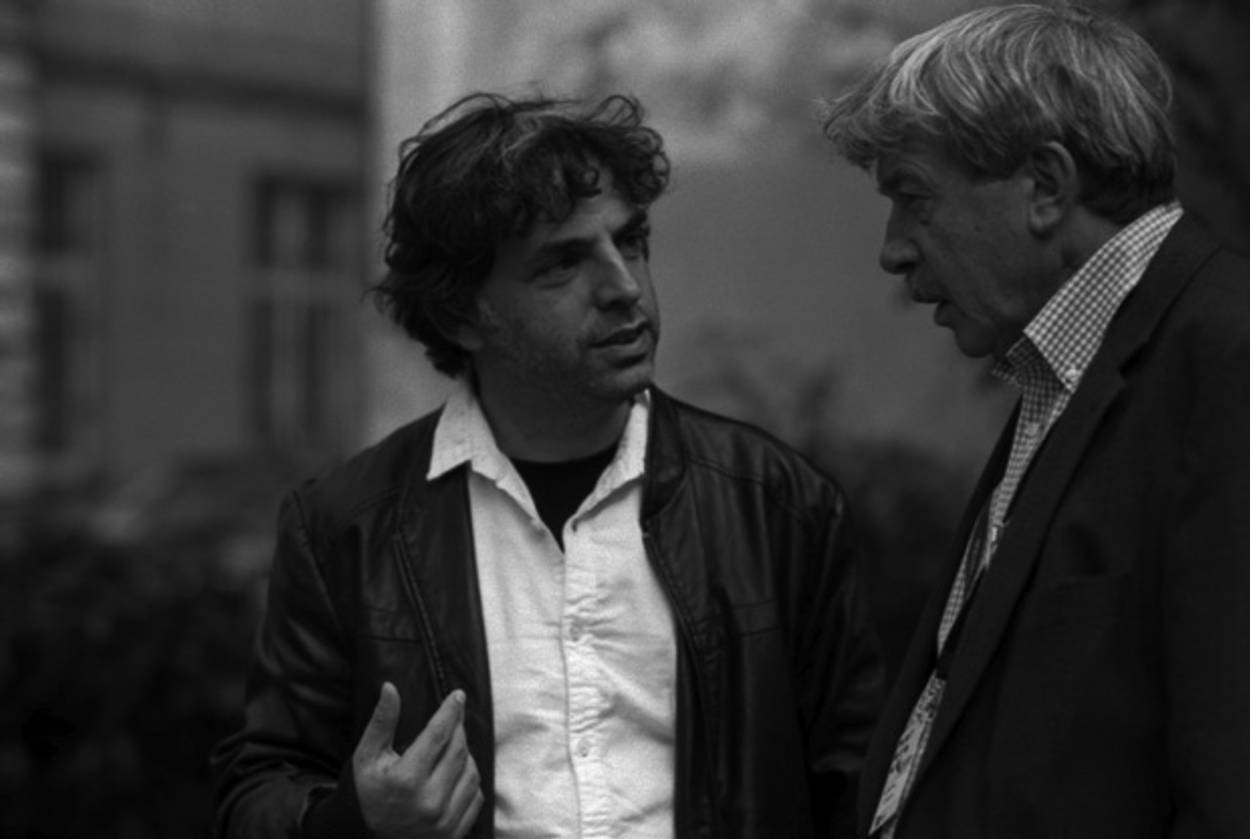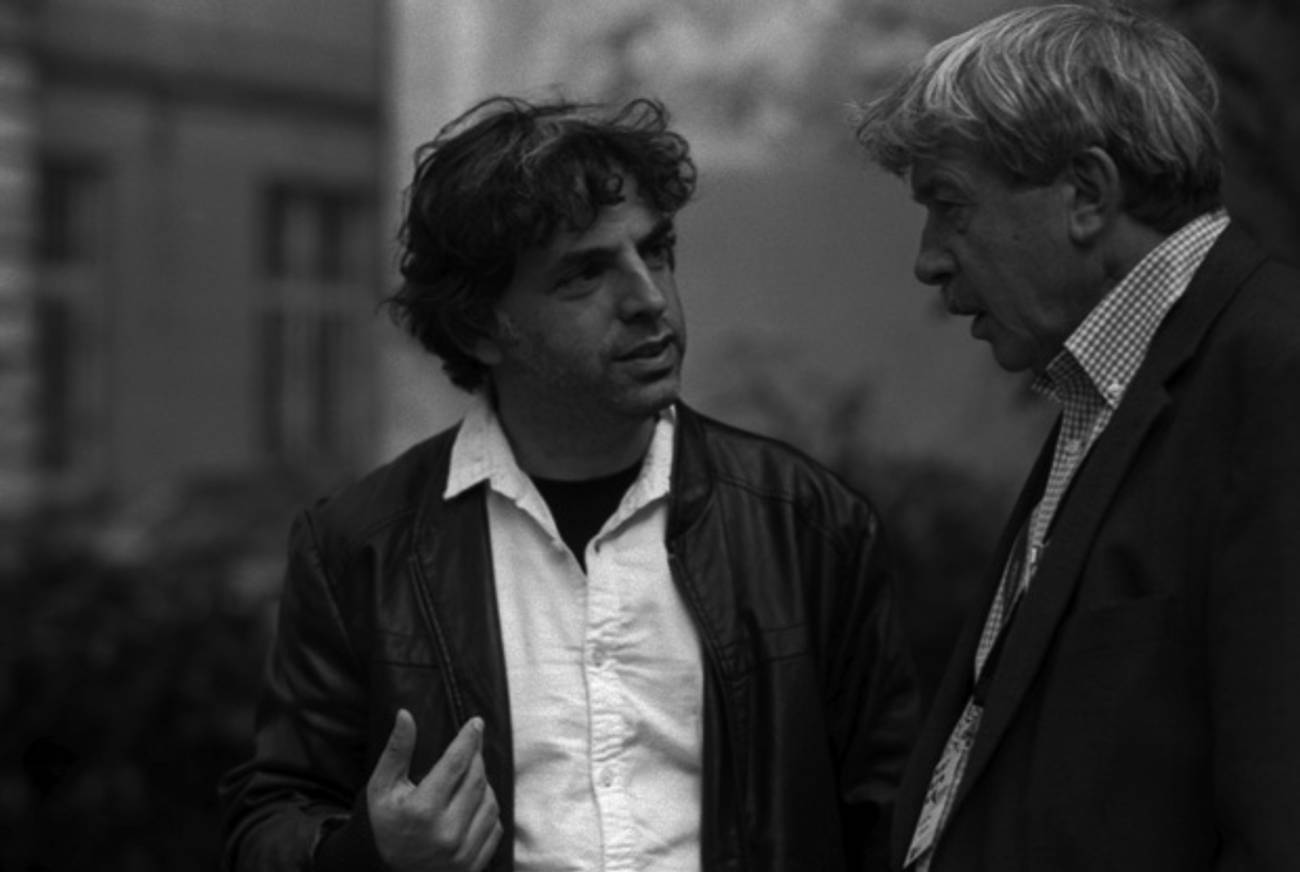Imaginary Homeland
Visiting Poland—the country where my mother was born—upended the black-and-white fantasy I had created in my mind




When I was a kid, I used to try to imagine Poland. My mother, who grew up in Warsaw, told me quite a few stories about the city, about Yerushalayem Boulevard (Aleja Jerozolimskie), where she was born and played as a little girl, about the ghetto where she spent her childhood years trying to survive and where she lost her entire family. Apart from one blurred photograph in my older brother’s history book that showed a tall, mustached man and a horse-drawn carriage in the background, I had no reality-based images of that distant country, but my need to imagine the place where my mother grew up and where my grandparents and uncle are buried was strong enough to keep me trying to create it in my mind. I pictured streets like the ones I saw in illustrations in Dickens’ novels. In my mind, the churches my mother told me about were right out of a musty old copy of The Hunchback of Notre Dame. I could imagine her walking down those cobblestone streets, careful not to bump into tall, mustached men, and all the images I invented were always in black and white.
My first encounter with the real Poland took place a decade ago when I was invited to the Warsaw Book Fair. I remember feeling surprise when I walked out of the airport, a reaction I couldn’t account for at the moment. Later, I realized that I had been surprised that the Warsaw spread before me was alive in Technicolor, that the roads were full of cheap Japanese cars, not horse-drawn carriages, and yes, also that most of the people I saw were utterly clean-shaven.
Over the past decade, I traveled to Poland almost every year. I kept getting invitations to visit and, although I had generally been cutting down on flying, I found it hard to refuse the Poles. Although most of my family had perished under horrendous circumstances there, Poland was also the place where they had lived and thrived for generations, and my attraction to that land and its people was almost mystic. I went looking for the house my mother was born in and found a bank there. I went to another house where she had spent a year of her life and found that it was now a grassy field. Strangely enough, I didn’t feel frustrated or sad, and even took pictures of both sites. True, I would rather have found a house instead of a bank or a field. But a bank, I thought, was better than nothing.
During my last visit to Poland a few weeks ago, for a book festival in another part of the country, a charming photographer named Elzbieta Lempp asked if she could take my picture. I agreed happily. She photographed me in a café where I was waiting for my reading to take place, and when I returned to Israel, I found that she had emailed me a copy of the picture. It was a black-and-white shot of me talking to a tall, mustached man. Behind us, out of focus, was an old building. Everything in the photograph seemed to be taken not from reality, but from my childhood imaginings of Poland. Even the expression on my face looked Polish and frighteningly serious. I stared at the image. If I could have unfrozen my photographed self from his pose, he could have walked right out of the frame and actually found the house where my mother was born. If he were brave enough, he might even have knocked on the door. And who knows who would have opened it for him: the grandmother or grandfather I never knew, maybe even a smiling little girl who had no idea what the cruel future had in store for her. I stared at the picture for quite a while, until my 5-year-old son came into the room and saw me sitting there, eyes glued to the computer screen. “How come that picture has no colors?” he asked. “It’s magic,” I smiled and ruffled his hair.
Translated by Sondra Silverston
Etgar Keret is a Tel Aviv-based filmmaker and fiction writer. He writes a regular column from Israel for Tablet.
Etgar Keret is a Tel Aviv-based filmmaker and fiction writer.